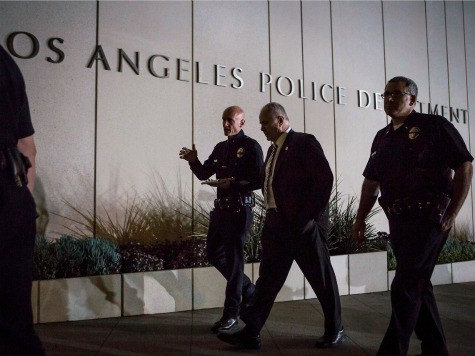By TAMI ABDOLLAH
Associated Press
LOS ANGELES
A judge has officially ended more than a decade of federal oversight of the Los Angeles Police Department that was triggered by a corruption scandal involving abusive officers.
In two short sentences, U.S. District Judge Gary Allen Feess dismissed the final remnants of a consent decree on Wednesday, releasing the department from a transition agreement put in place in 2009 to ensure reforms that had been made were kept in place.
Mayor Antonio Villaraigosa cheered the formal end to agreement at an afternoon news conference with Police Chief Charlie Beck. Villaraigosa said the department, which was once “an example of how not to police a city, is now a national model.”
Tyler Izen, president of the Los Angeles Police Protective League, said the union was pleased the department was free of the federal monitoring.
The city was forced into the consent decree in 2001 under the threat of a federal lawsuit. The U.S. government alleged a pattern of civil rights violations committed by police officers that went back decades.
The abuses came to light after the so-called Rampart scandal in which officers in an elite anti-gang unit were found to have beaten and framed suspected gang members.
The decree mandated more than 100 reforms and the appointment of an outside monitor.
It ended in July 2009 and a transition agreement was approved to ensure the reforms continued.
Reforms included improving training, a better system for monitoring officer performance, increased oversight of the anti-gang unit, and a ban on racial profiling.
During the transition agreement, the civilian Los Angeles Police Commission was responsible for oversight of the reforms.
If Justice Department lawyers were unhappy, the agreement allowed them to take the department back to federal court.
Rosenbaum, who represented community groups in the case, said there were still questions about the department’s treatment of homeless people and whether it was doing racial profiling. He said data on who is stopped, questioned or arrested isn’t made public.
But Rosenbaum acknowledged that much had changed for the better.
___
Tami Abdollah can be reached at http://www.twitter.com/latams.

COMMENTS
Please let us know if you're having issues with commenting.